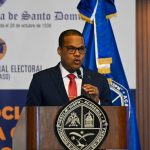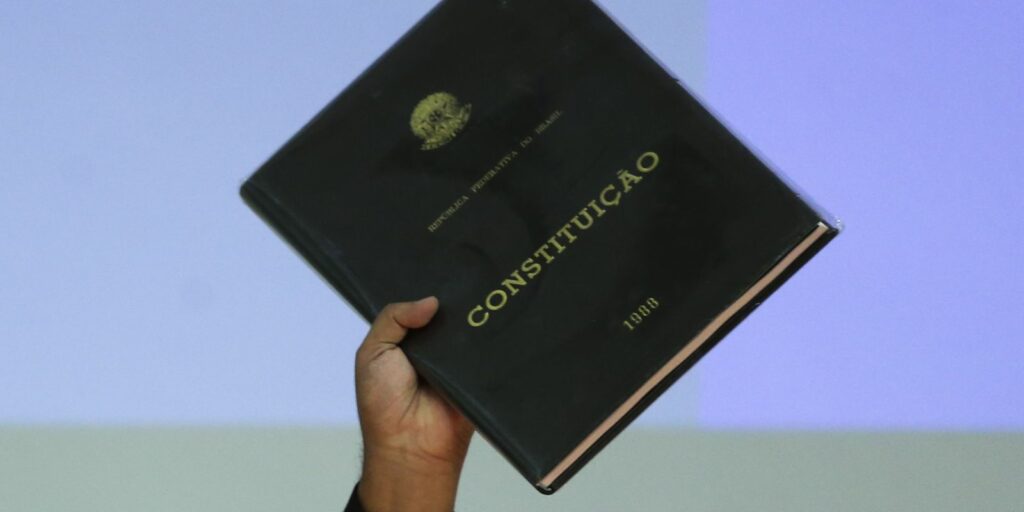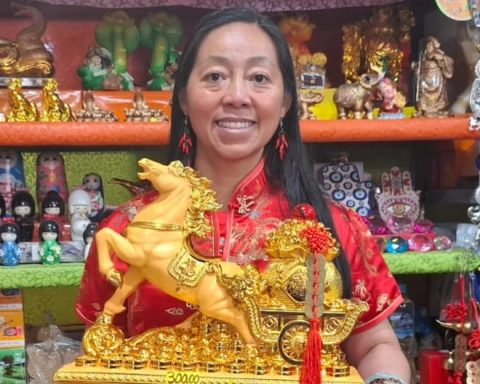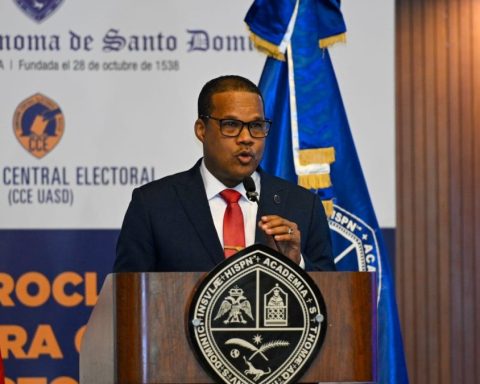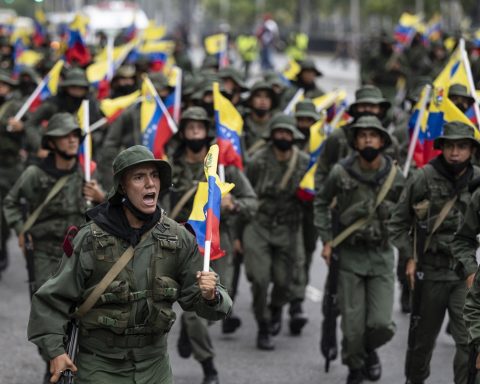Late Thursday night, the Committee of Experts concluded the first stage of the process and first thing Friday morning the four subcommittees publicly presented their proposals for the constitutional draft. Some subcommittees finished their text very close to the midnight deadline on Thursday, but all complied with entering the rules that must now be voted on Monday at large. It is expected that what this commission delivered will be approved unanimously on Monday in the vote on the project in general. It will be in the discussion in particular when the indications are entered and the differences between one sector and another are known. Lawyer Juan José Ossa, who headed the subcommittee on Political system, constitutional reform and form of Stateestimated that what was known on Friday is “a great first agreement, but there were no resignations on key issues by the different actors, although there were on other issues.”
Of the four subcommittees, only one had a serious conflict, which ended with one of the experts standing up and making a move to leave the room. That happened this week and it was in the subcommittee on Economic, Social, Cultural and Environmental Rights, while the “Social State and Law…” was being discussed, a right-wing expert stood up from the table when she was unable to convince about raising to constitutional rank the freedom of choice of contributory contributions in matters of health and social security.
In contrast to the above, in the subcommittee on Political system there were no major divergences and from the beginning of the discussion there was full agreement on the composition of the Congress. All the experts agreed on the urgency of ending the current fragmentation of parties represented in Parliament.
The other element that distinguished this month of work was the total secrecy with which the expert commissioners worked, discussing and drafting their proposals. When the press consulted the members of the different subcommittees during this month, the usual response was “we are working, we cannot declare anything for now.” Among the members of the commission there was a pact of silence so as not to repeat the mistakes made in the Constitutional Convention of 2022, where it was normal for the conventional ones to be protagonists in the media and social networks.
The conflict
The main ideological battle between experts this month was over how the “social and democratic rule of law…” will be enshrined in the draft new Constitution. Different representatives of the Committee of Experts say that the issue was present in the four subcommittees and in each one of these the different variants and implications that this topic brings with it were evaluated. Thus, each one evaluated the concept in different depth, but it was in two subcommittees where the discussion was more arduous.
The most complex conflict on this issue occurred in the subcommittee on Economic, Social, Cultural and Environmental Rights and it was starred by Bettina Horst (UDI), a researcher at the Libertad y Desarrollo Institute. Voices within the UDI state that Horst acted in her personal capacity and that she does not represent the party’s position. Horst’s annoyance occurred last Monday, when she strongly defended raising the freedom of choice of contributors in health and social security to a constitutional level.
The most critical moment of this confrontation occurred when she, very upset, got up from the conversation table to leave the meeting. The dispute was resolved when the president of this subcommittee, Alejandra Krauss (DC), managed to talk with the UDI expert and convinced her to rejoin the debate.
On this conflicting issue, the pro-government experts defend a “robust social State” and insist on the definition of “social and democratic State of law…”, as it was in the bases of the agreement that allowed the constituent process. Bettina Horst, for her part, defends the idea that this is compatible with the principle of subsidiarity and freedom of choice. The pro-government commissioners say that this idea is incompatible, but Horst disagrees and wants to ensure that the state cannot use contributions to generate solidarity.
Finally, this discussion regarding the “social and rights state” and the extent to which private parties participate, was left pending. On Monday, these drafts delivered by the subcommittees will be voted in general, the commissioners will have to prepare the respective indications, specifying what each sector wants. It will only be the vote in plenary session that will determine if the proposal will consign a State of a social nature or, well, have some subsidiary nuance.
This issue was also hotly debated in the subcommittee on Principles and Civil and Political Rights, led by the UDI Máximo Pavez. Once again, the interest of the representatives of Chile Vamos was brought up to relativize the concept and manage to coin subsidiarity, the participation of private individuals in social rights. Pavez was the one who had the toughest position, but witnesses point out that he was unable to form a bloc with the other right-wing militants who were in the subcommission. In the end the conflict did not spread and it was decided that Roughnesses will be smoothed out in plenary session by means of the indications entered in this standard.
Everyone happy
The subcommittee of Political system was one in which the discussion developed more smoothly and harmoniously. In this sense, this month of work in Political system It was the antithesis of what happened in the 2022 process, when this was the commission where there were more confrontations and ended up being the center of attention of all the media.
The work of this subcommittee began with a common diagnosis that focused on the inability of the last governments to govern and fulfill their political agenda. Later, after hearings with other experts, alternatives emerged that generated consensus on the part of all the members of the commission and these were, first, that Congress is fragmented and that hinders negotiations between the political forces of the Executive branch with Parliament and between the same legislators; second, that the situation of fragmentation increases because the deputies can resign from the party as soon as they are elected to office.
“The fragmentation of the national political system has caused a deterioration in governability and political stability”, indicates the official letter delivered by the subcommittee on Political system as background. In addition, he affirms that “nearly 10% of the current parliamentarians have resigned from their parties or changed from their original committee or bench. That is a relevant fraction that contributes to political instability, weakens party institutions and causes a situation of lack of accountability to voters.
To amend these vices, the experts proposed a system of entry to Parliament that ensures the presence of fewer but larger political parties. In this way, not to divide the forces into many groups, but to concentrate on defined political forces. This is what the rule says: “Only the political parties that reach at least five percent of the votes validly cast, at the national level, in the election of the members of the respective Chamber of Deputies, will have the right to participate in the allocation of seats in each branch of the National Congress. The calculation of the indicated percentage will be made according to the general scrutiny practiced by the Qualifying Court of Elections”. The same requirement was established for the Senate.
This means that only those who win the elections and have registered their candidacy with a political party that has obtained 5% of the votes at the national level will be able to access Parliament. If a candidate obtains the electoral majority in his constituency, but her party does not have 5% of the votes at the national level, he will be left out of the chamber, he will not be able to be elected. The other novelty on this point is that, if a deputy resigns from the party for which he was elected, he must also resign from his position in Parliament.
If this norm were applied to the current Chamber of Deputies and Deputies, Christian Democrat parliamentarians, Evópoli and several of the small parties would have been left out, because they did not obtain more than 5% national. If this regulation were applied to the current Parliament, 55 of the 155 deputies who are currently in office would have to leave.
Juan José Ossa explains that the idea was not to leave parliamentarians out, but to have larger parties that can exercise greater power over their parliamentarians. “Today there are 21 political parties and two in formation. A configuration in which it is very difficult to negotiate with everyone, because each one has its price.”
The president of Evópoli and candidate for Constitutional Counselor, Gloria Hutt, assumes that “it puts pressure on us”, but appreciates the proposal, since “it forces the formation of alliances, it also forces us to find agreements and have representative blocs of the will more balanced than we have now”. Hutt welcomes the measure and believes that it is possible that this proposal “leads us to democratic stability and that the decisions made in Parliament have the support of a number of important voters.”
RN President Francisco Chahuán maintains that the issue of establishing the threshold for entry to Congress is something that the political parties have discussed and believes these measures are necessary to combat the “atomization of politics.” This is because, otherwise, “leaderships that do not answer to the citizens and that, ultimately, act without responsibility” may appear.
Optimism
Among academics and specialists in the constitutional issue, there was agreement that this part of the process made important progress. The UDP academic specialized in global trends of constitutionalisms, Javier Couso, highlights, first of all, that “A group from a broad political spectrum has reached the same diagnosis: that the fragmentation that exists in Congress makes it very difficult to govern the country.” The most relevant thing, warns Couso, is the 5% threshold to be able to have parliamentary representation and, with that, “a political system that is capable of responding to the demands of the citizenry.”
The fact that those parliamentarians who renounce their militancy or the bench to which they belong lose their status as legislators, is another point to be rescued for the expert. “A democracy does not work without strong political parties”, the UDP professor points out, and when there are no strong parties, charismatic, messianic and personalist leaders appear, he adds. So, “there is a commitment here to strengthen the parties, but in turn strengthen that there are few, but strong ones,” he maintains.
The lawyer, academic and former ambassador to the United States, Arturo Fermandois, has a vision that coincides with Couso regarding the threshold of 5% of votes at the national level by party. The lawyer describes it as a “success” and points out that “it is a step that had been essential to recover a basic level of parliamentary governance” .
Regarding the dismissal of those parliamentarians who resign from their party once they reach Parliament, Fermandois believes that it is “a contribution to governance and parliamentary discipline.” However, he explains that it is a “hard measure and sacrifices a democratic principle”, which he does so seeking “better predictability in the ideology and in the parliamentary organization”. So, this “sacrifice” would not be so much, since it has a balance, since there is a “representation component, since the voter associates it with the party.”
The candidate for constitutional advisor of the ruling party and one of the founders of Social Convergence, Yerko Ljubetic, believes that “the proposal entered yesterday gives a good sign by incorporating mechanisms of direct democracy, balance between powers so that collaboration and strengthening prevail.” However, it warns that there are pending matters that must be resolved by those who make up the Constitutional Council, such as “gender parity that is here to stay and the consecration of seats for indigenous peoples in Congress, issues that part of the right compromised in the plebiscite of exit”.








